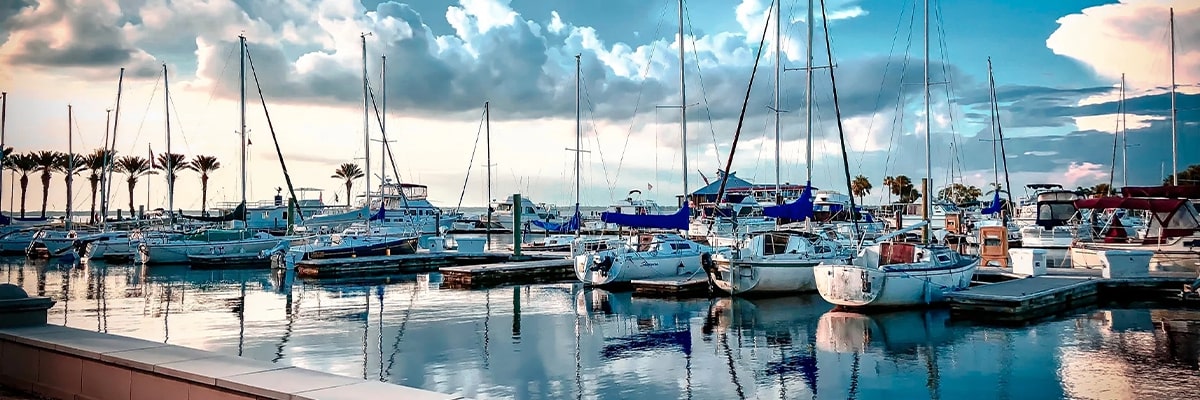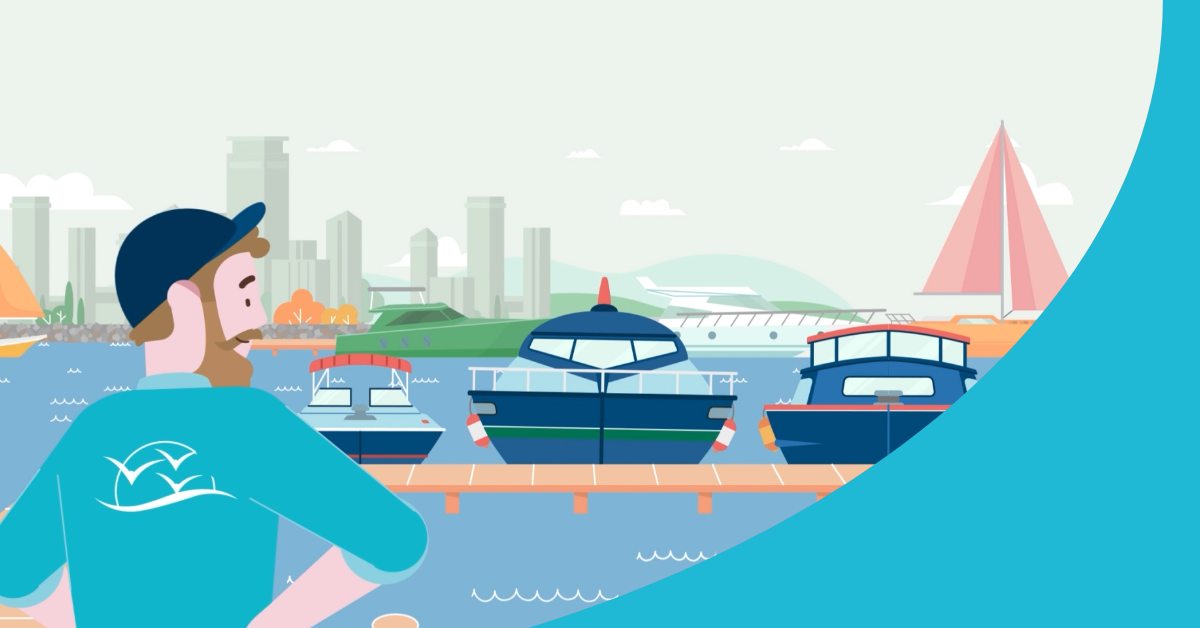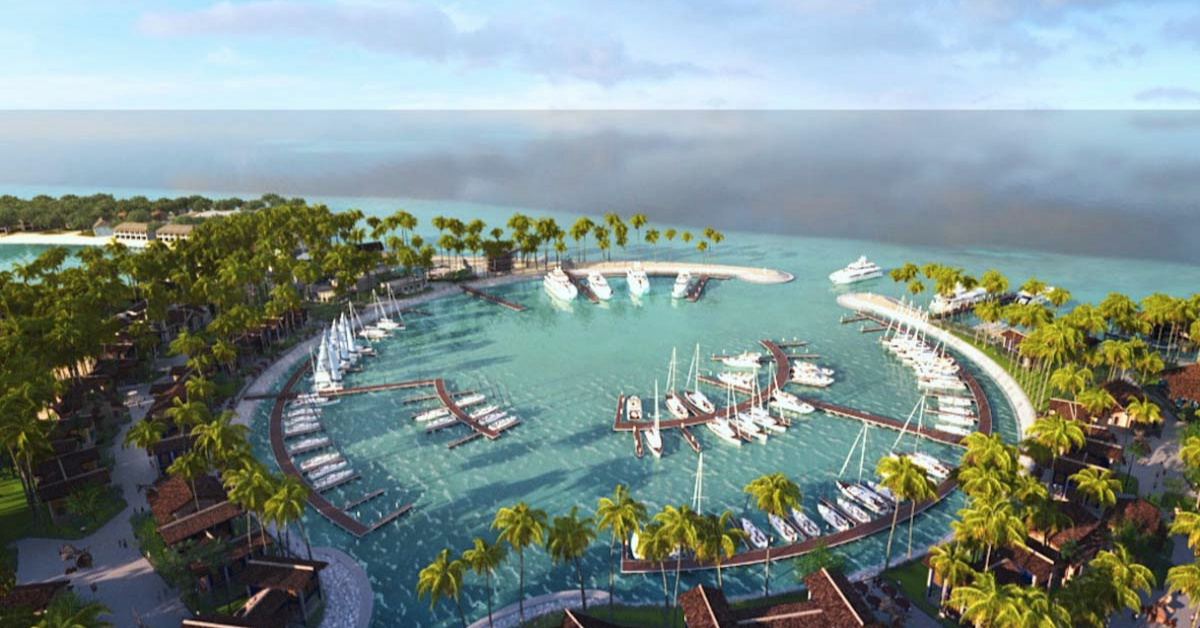
Pick a Pier founder and CEO Idan Cohen explains how market forces are making a compelling case for marinas to become smart, with that pathway enabled by collaboration and interoperability.
I first understood some of the challenges in the marina sector 10 years ago when working for the company that managed the coastline in Tel Aviv, Israel. Making a business case for bringing in comprehensive tools for marinas to manage their operations was challenging. Manual and complicated back-office processes were inefficient and not conducive to good customer experiences. That inspired me to create my own business, Pick a Pier, to offer a modern way of managing marinas similar to hotel and travel booking services.
To understand why modernising marina systems is essential for the future, let’s look at significant changes in our markets.
Market forces
Five forces are moving the recreational boating industry:
- The new generation of boaters. According to the NMMA, which has the best data we get as an industry, we now have more buyers of boats under 40 compared to the previously dominant 60+ age bracket. That means changing customer habits and expectations – the marine industry should follow suit. The declining golfing market is an example of what happens if you don’t do enough to capture the younger generation’s interest. Conversely, the Olympics has new sports for each edition to attract new audiences – this is the kind of approach we need for the marine sector.
- Stagnating supply. We have a finite coastline, and there is a considerable discussion about the complexity of building new marinas – some are happening, but it’s more complex than it used to be to create more berths. Against that, we have more users and many boats in manufacture. So we must find ways to utilise existing supply to meet the demand.
- New business models. The sharing economy is generating new interest in rental, boat clubs, shared ownership, accommodation only stays on boats and the like. Marinas need to understand these concepts and adapt to them.
- Interconnectivity with surroundings. When you get to a marina with a boat, then what you see is often what you get. Since the mobile phone revolution, though, people have had higher expectations – you anticipate getting much more and experiencing many services beyond the pontoon. A boat that arrives in the marina may have a positive local economic impact for five or even 10 miles in the landside infrastructure around the berth. The marina needs to facilitate that provide a better customer experience and connect the services that exist. Marinas will transform into interconnected leisure hubs for boaters and their host communities. Usually, a thriving marina equals a flourishing town or city.
- Increased environmental awareness and climate change. Marinas are usually visible in strategic locations and are being watched internationally and locally by every regulator. Marinas need to measure their impact, minimise the effect and prepare for regulations that are about to come.
Defining the smart marina
The user experience at a marina is different at every destination customers visit. The reasons may include a lack of technology, low investment and local regulation. Marinas are at the centre of our industry but often act like isolated islands. It makes for a very fragmented customer experience and marinas are not utilising their full potential.
We believe the ‘Smart Marina’ is easily accessible, efficient, interconnected, and universal. Technology can take care of most of those requirements.
If we have this interconnectivity, we will know much more about the positive financial contribution to the community. With solid insights, it will be possible to forecast demand, understand what to build or change, optimise operations and make the marina more accessible. It will change the entire dynamic of the market.
Simplified communication means the marina can focus on providing better service. Improving berth utilisation through technology means increasing supply without building more marinas. We are working on revenue management and dynamic pricing for marinas, a game changer for the industry. We also need to see how we can simplify things for boaters regarding documentation –there is no standard.
Essential to talk and change
We often talk about how unique our industry is but have a glass ceiling to our ambitions. Other sectors, with their unique challenges, have made successful significant transitions. Examples include the shipping industry (with its change to containerisation), the evolution of financial businesses to digital payments and the travel industry to online reservations on common platforms. Change in these cases didn’t just happen. It was possible because these industries learned to speak to each other.
Pick A Boat was founded to focus on delivering and helping digital transformation. We can discuss significant technologies like artificial intelligence to improve customer experience. However, digitisation starts with simple things like creating a common language, essential to creating an interoperable environment.
ICOMIA’s Marina Group comprises many industry leaders and experts and I have been pleased to contribute to this as a member of The Israeli Marine Innovation Association. We are working on an initial document to explain the next steps and how the industry might move on crucial marina-related issues such as interconnection, data collection, and sustainability.
This discussion has recognised that every marina and every region is so different. It will require all tools and results to be open for everybody to use so everybody can gain something out of it if we are to work at the industry level on one solution.
The need for more data
The discussion must start with interoperability because it will provide the information the industry needs to grow. Most of the reports that we have focus on new boat builds. That’s like measuring the hotel industry by how many buildings have opened in the past year without considering occupation rates and other success factors.
We believe the recreational boating industry has almost 200mn people participating today and around 30mn boats with 30,000 marinas. However, these are estimates – we don’t know the precise size of the boat fleet, the transactions that take place, the demand, and the potential for what we have. To address those issues, we need to connect data as an industry. With better data, we can better utilise existing resources, encourage marinas to become smarter, encourage boaters to travel and move the sector forward.
Public reaction to the pandemic gifted the recreational marine sector with many new users. Now we must work together to get ready for the new generation. It won’t be enough for marinas to do this in isolation and leave other co-dependent sectors to work in siloes. This can be solved. We all need to communicate differently to understand better the potential that we have, take it to the next level and provide the very best customer experiences.
_____________________
About the author

Idan Cohen founded Pick A Pier in 2017 to build a modern digital infrastructure that enables marinas to deliver more welcoming, personalised, and sustainable customer experiences. The company is currently working with marina partners in over 10 countries.



